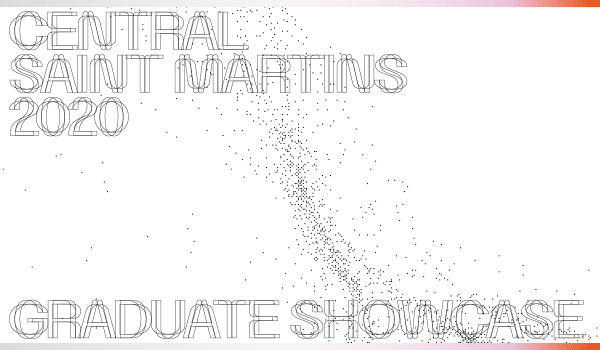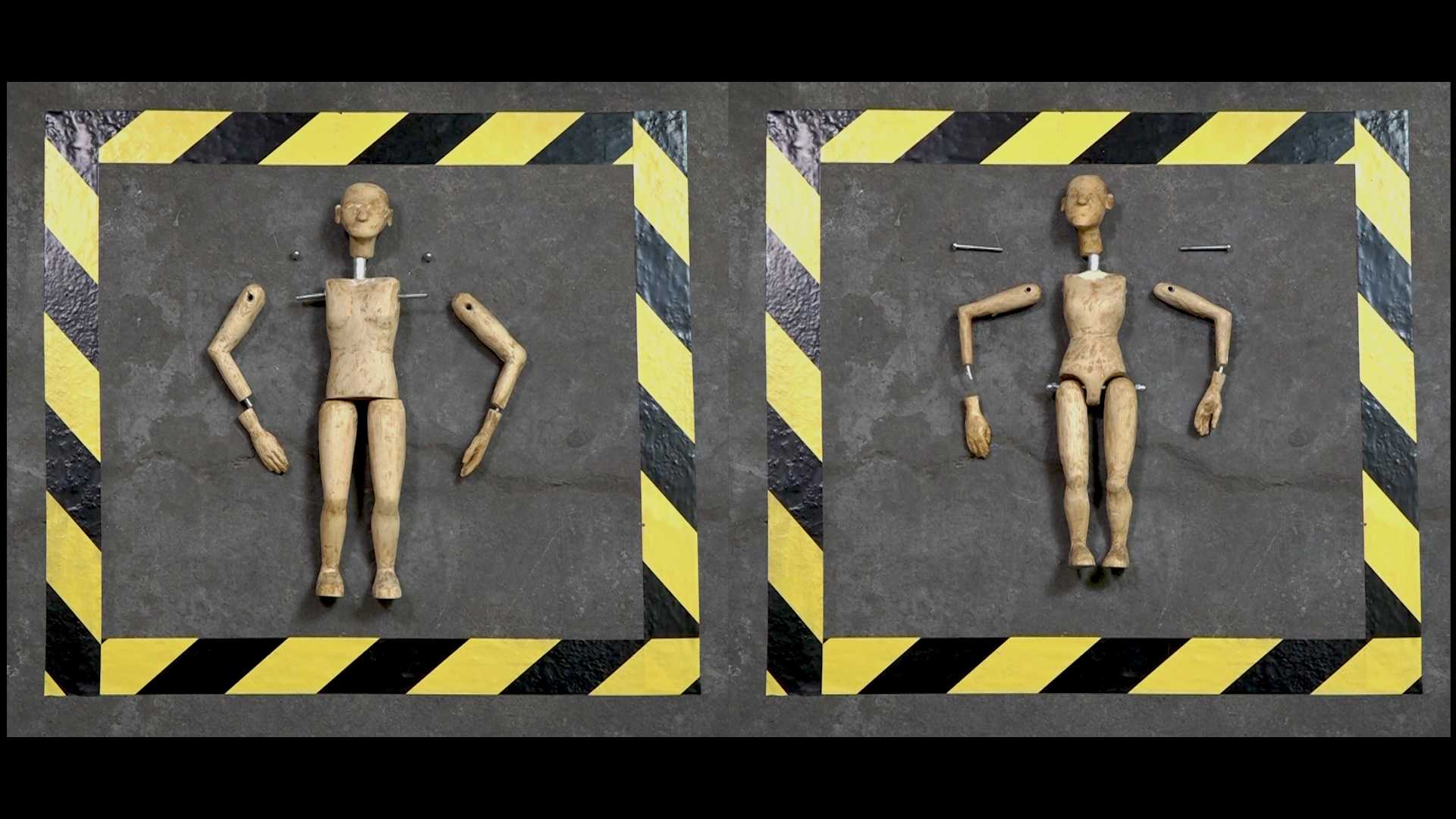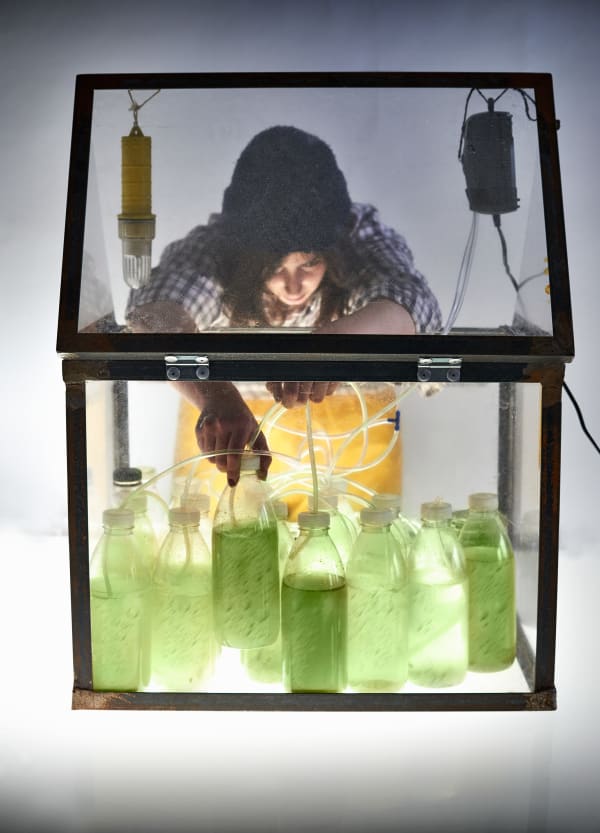As the ways many of us work have changed beyond recognition this year, so too has the value and meaning of work itself. We speak to graduates – themselves finishing their studies in the most extraordinary of circumstances – who are dissecting the meaning of work.
While her film is boldly expansive in outlook, Sophie Huckfield’s inspiration was intensely personal. Her father was made redundant:
“It was framed like an inevitability. That’s the way it goes when people are made redundant; you’re too old and past it. That’s the narrative… My work responds to that. What happens when people are treated like things and disregarded?”
Her MA Material Futures film, Break the Frame, combines stop-frame animation and voiceover to explore the ethics in our current system of labour, industry and capitalism. She had been planning to present her work as a live experience and though lockdown altered the final outcome it only emphasised the precarity of the labour market and how perceptions of market value have bent our understanding of essential work.
The film moves chronologically from past and present towards a possible future. Titled CNC, the present is shown as callous and inhuman. The film then proposes CARE, a future with collective action at its heart. With a background in engineering, Huckfield created a mechanistic aesthetic with wooden mannequins and striped black hazard tape set in a post-industrial space.
The film deconstructs narratives of progress, connecting the gargantuan structures to the impact they have on people’s lives. Huckfield isn’t telling a new story but instead analysing the entrenched ones.
“They are the ones that we’re told to accept, one dominant narrative from top down. But we need to table all the tangent narratives, deconstruct progress and growth… We live in a designed system and a lot of the problems we have are designed problems. So as designers we need to challenge those systems that we’re a part of. We need to think about collectivity as a way of taking a stand.”
Sophie Huckfield, MA Material Futures

While Huckfield focused on macro systems, Gabriel Blatterspiel, BA Fashion Design, turned to the signifying details of work. Blatterspiel comes from Erlangen, a small German city that is home to technology giant Siemens. He documented over a thousand outfits worn by workers around the headquarters building. Though there was no formal uniform, there was noticeable uniformity and collective identity. He isolated recurring moments and motifs, pushing them to an almost absurd level. His final collection being both a love letter and critique:
“Even though there is something weirdly romantic about this voluntary uniformity, you can see a lot of criticism in my project. I find nothing more fascinating than individuality and independence and celebrate the latter.”

Elizabete Ilstere, MA Innovation Management, focuses on methods to make work more meaningful. Having worked collaboratively throughout her course, she was curious about the small rituals and exercises that began to permeate her group work. Before meetings she and her fellow students would introduce moments for the collective, be it a collaborative drawing, a dance exercise or discussion.
She found that rituals have the potential to “focus thoughts and focus actions. There is a collective intention and you get into the same flow by creating this shared reality.” The introduction of a ritual creates a connection across the group, something that goes beyond the everyday. Rituals might be better known in religious contexts and rites of passage but Ilstere sees the workplace more and more as a place where people are looking for more meaning:
“Encountering rituals through life is as sure as dusk and dawn. Even if people don’t consider themselves ritual beings they might still give gifts, go to weddings or graduations... Put simply, a ritual gives time a higher meaning… Society is becoming less religious and places of worship used to be the heart of communities where friendships were formed. They offered friendship and meaning. Now, to some extent, the workplace offers that sense of belonging.”
Key to the success is intention and voluntary participation. As she experienced, the practice must come from the community rather than from above. “It’s not another wellness activity. There's a fine line between big corporations implementing wellness activities at workplace and actually caring about wellbeing of their employees. Is it really for the people or is it simply to benefit the corporation? It’s important that rituals are done creatively and together.”
More:
-

Central Saint Martins Graduate Showcase
-

Molly Hiebert


